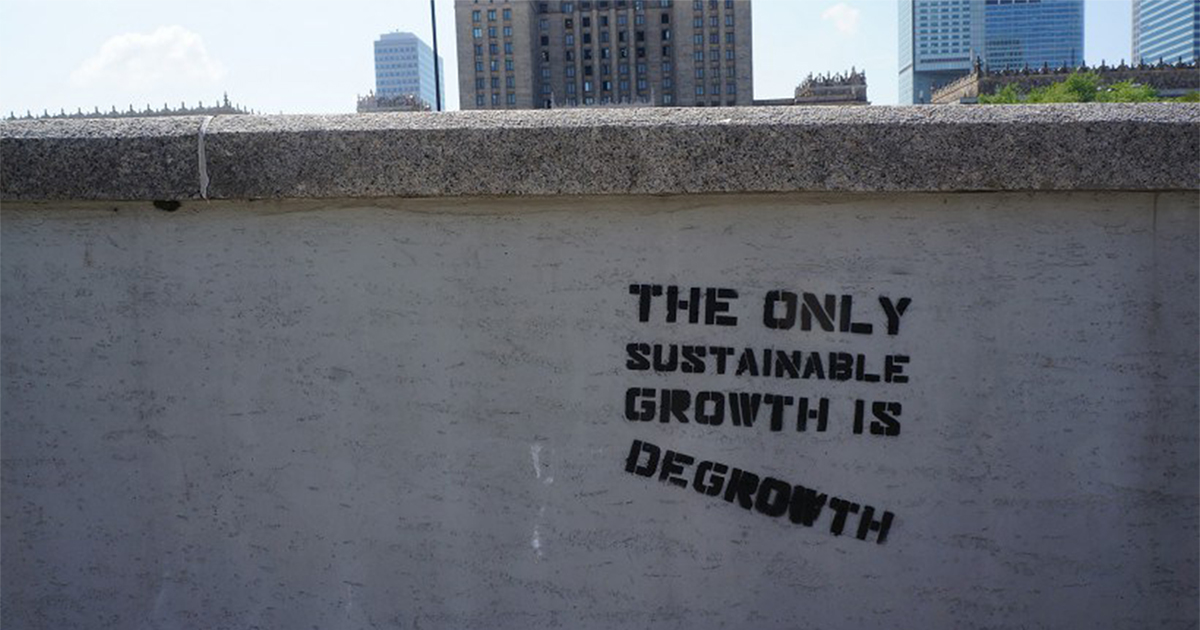
Economic Growth a Fool’s Errand
The European Environmental Bureau (EEB) earns my gratitude, but not my respect, for publishing this commentary:
Opinion: Economic Growth Is Not Compatible With Environmental Sustainability
I couldn’t miss that the EEB was careful to label this as “opinion.” Why? Because economic growth remains the Holy Grail. It is blasphemous to suggest its pursuit be abandoned. So the EEB had a tinge of courage and published this. But clearly the editors of its online magazine, META, suffered enough cowardice they had to distance and protect themselves from possibly being considered blasphemists. In spite of the celebrity status enjoyed by GDP growth, the truth is that headline is not an opinion; it is a fact. Economic growth IS NOT compatible with sustainability. Another fact: NEVER does anyone bother to label as “opinion” statements implying economic growth solves all problems and is an unalloyed good.
So while I congratulate the EEB for publishing this commentary, my praise is lukewarm. I expect better. There is room for much more boldness in defense of the truth. Applause IS due the author of this piece, Federico Demaria, who dares to write:
“Growth for the sake of growth’ remains the credo of all governments and international institutions, including the European Commission. Economic growth is presented as the panacea that can solve any of the world problems: poverty, inequality, sustainability, etc. You name it. Left wing and right wing policies only differ on how to achieve it. However, there is an uncomfortable scientific truth that has to be faced: Economic growth is environmentally unsustainable.”
Demaria, an ecological economist at Environmental Science and Technology Institute, Universitat Autònoma de Barcelona, is the co-editor of Degrowth: A Vocabulary for a New Era.
“Mainstream economists, finally convinced by the existence of biophysical limits, started to argue that economic growth can be decoupled from the consumption of energy and materials (or from environmental impacts, that is the same thing). Historical data series (like Material Flow Accounting from EUROSTAT) demonstrates that this, up to now, has not happened. At most, there is relative decoupling (a decrease in resource use per unit of GDP). But, there is no absolute decoupling, that is what matters for sustainability: an absolute decrease of environmental resources consumption. The only periods of absolute dematerialisation coincide with economic recession.”
So much of Demaria’s commentary here is quotable. We should make posters. The need for this truth-telling is punctuated by the news this week that one of the world’s most ardent growth worshippers is on his way to the U.S. White House. Donald Trump’s choice for chief economic advisor – Larry Kudlow – is a high priest in the church of growth everlasting.
“It is simple: Economic growth is not compatible with environmental sustainability. The list of nice oxymorons is long (from sustainable development to its reincarnations like green economy or green growth), but wishful thinking does not solve real problems. Increase in GDP leads to increase in material and energy use, and therefore to environmental unsustainability.”
I’ve shared a few gems here, but I recommend you read the entire piece. It’s not long. And spread it around. We need an epidemic of realistic truth on this subject. Economic growth needs to be knocked off the pedestal we’ve put it on for far too long.
“…the issue is not whether we shall abandon economic growth. The question is how.”
Tags: economic growth, gdp growth, limits to growth
Trackback from your site.